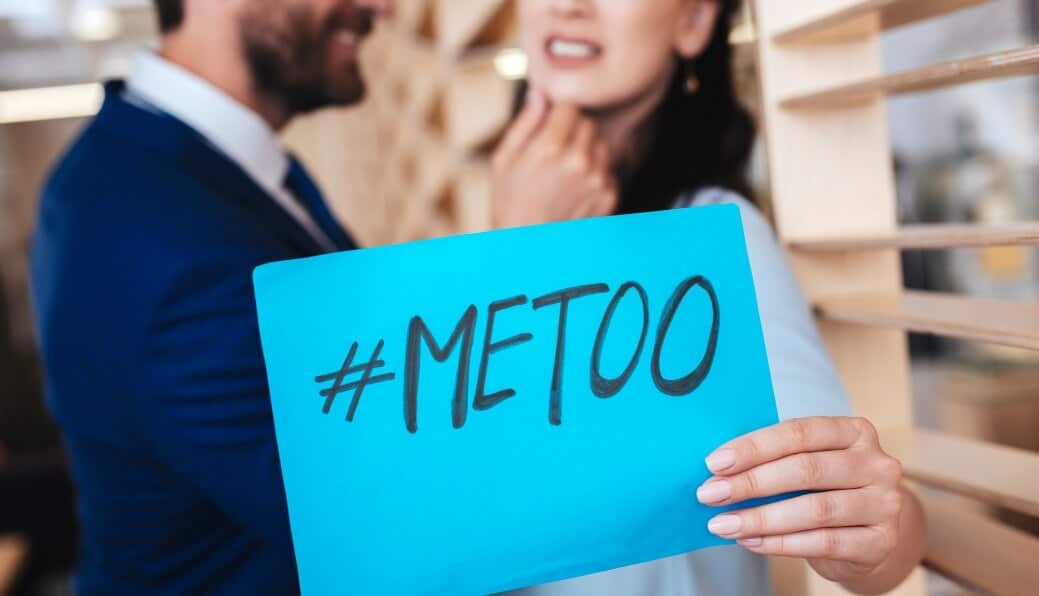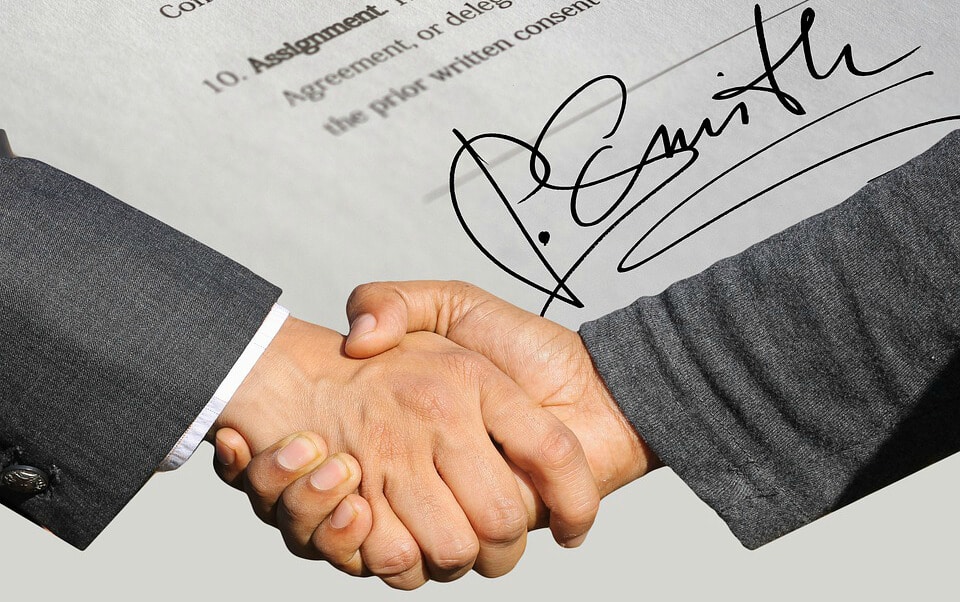Speak to an Employment Lawyer
Answer the following questions to schedule a free consultation
Answer the following questions to schedule a free consultation
To get started, give us a call during normal business hours and share some basic details about your case.
We’ll listen to your story, understand your goals, and create a legal strategy that aligns with your needs.
Receive top-quality legal representation. We’ll continue fighting until we get you the outcome you deserve.

Whether you’re new to the job market or were recently terminated, it is important to understand your rights as a employee. There are numerous laws at both the federal and state level that protect workers from a wide range of issues, from workplace discrimination, sexual harassment, unsafe working conditions and more.
Although the two terms are often used interchangeably, labor laws and employment laws are actually quite different. While both types of law involve workers and those who hire them, the difference lies in collective rights vs. individual rights. In other words, labor laws apply to groups of people whereas employment laws apply to the rights of individuals.
If your issue arises out of collective bargaining or attempts to form a union, then you need a labor lawyer. If your issue involves the rights, obligations, and responsibilities within the employer-employee relationship, then you need an employment lawyer.
At the heart of employment law lies the concept that an employee can be fired for a good reason, bad reason or no reason at all. This “at-will employment” rule means that you generally cannot sue your employer for terminating your employment. However, this principle is not absolute. Employees do have rights when they are fired, including contract rights, company policy, and statutory rights provided by state and federal law.
If you are dealing with an employment dispute or need advice on a work-related issue, you may want to consult with a local attorney. An experienced legal professional can help educate you on state and federal laws concerning wrongful termination, workplace discrimination, wage disputes and other employment-related issues.
There are a number of legal issues that can arise in the workplace. While not every situation requires legal counsel, some are particularly challenging and may require a lawyer’s expertise. Here are some of the most common issues for which people seek professional help:
All employees are legally protected against workplace discrimination. Federal laws prohibit discrimination based on race, sex, religion, national origin, the fact that you become pregnant, age (if you’re at least 40 years old) and genetic information. This behavior can manifest itself in firing, unequal pay, unfair benefits, workplace harassment, hostile work environment and preferring to deal with younger workers than those age 40 or above.
An act of discrimination doesn’t translate to an immediate trip to court. Instead, you must file a complaint with the Equal Employment Opportunity Commission (EEOC), generally within 180 days after the conduct you allege violated your rights. The EEOC will then investigate your complaint and issue you a “right to sue” letter. In most cases, the Commission will first attempt to schedule a mediation between the two parties involved. If you can’t resolve your issues through mediation, you can file a lawsuit once you receive that letter. Keep in mind that there are numerous deadlines that need to be met during this process, so it may be a good idea to consult with a lawyer.

Sexual harassment in the workplace occurs when an employee can no longer do their job because the environment has become permeated with sexual innuendo and other lewd, inappropriate behavior. This usually manifests itself in unwelcome sexual advances, requests for sexual favors and other verbal or physical conduct.

Disability discrimination occurs when an employer treats an employee or applicant unfavorably because he or she has a disability. The Americans with Disabilities Act (ADA) protects applicants and employees from discrimination in every aspect of employment, from hiring to benefits to termination. It also requires employers to provide reasonable workplace accommodations to workers with disabilities, unless doing so causes significant difficulty or expense for the employer. For instance, workplaces may have to provide braille signs for visually-impaired workers or wheelchair-accessible work spaces.

In the majority of U.S. states, employers are not legally required to provide paid medical leave. However, the Family Medical Leave Act (FMLA) requires larger employers to allow for unpaid leave if their employee needs to deal with a personal or family medical issue. Your state’s laws may give you additional rights.

While many people who were fired feel their termination was “wrongful,” the legal definition of wrongful termination is a lot more specific. For a firing to meet the definition of wrongful termination, it must be considered illegal in the eyes of the law. For example, a firing over religious beliefs would be in violation of federal civil rights law and would be considered wrongful termination. Wrongful termination may also be referred to as ‘wrongful dismissal’ or ‘wrongful discharge’.

These contracts include confidentiality and non-competition agreements. A confidentiality agreement, also known as a non-disclosure agreement or NDA, prohibits employees from disclosing any sensitive information they obtained during their time of employment. In a Non-Compete Agreement, also known as a non-compete clause (NCC) or covenant not to compete (CNC), restricts an employee from starting a competing business or working for a competing company for a stated period of time after employment ends. Litigation may involve disputes about the validity and reach of these types of agreements.

In most states, you can receive unemployment benefits if your dismissal didn’t result from misconduct such as insubordination, theft, fraud or acts that harmed your employer. However, if the conditions surrounding your firing were more complicated or you’ve already been denied unemployment benefits, you may want to hire a lawyer.

People who suffer work related injuries may be able to claim worker’s compensation benefits. These laws are great for the claimant because they don’t need to prove negligence or hazards in the work place. However, they generally cannot pursue pain and suffering or other tort-based relief.

A lawyer specializing in employment law can deliver expert advice, guide you through your dispute and can negotiate agreements that prevent problems from ever occurring in the first place. Here are some of the more common services they provide:
Many lawyers in the employment field help clients negotiate or prepare employment contracts. Carefully drafted documents spell the length and terms of the employment, job duties, the best possible salary and benefits package, the permissible grounds for termination and any severance pay. The contract may also address how to handle trade secrets, customer lists and other property of the employer. Having an attorney review non-competition agreements or prepare them can lessen the disagreements over whether the restrictions are too broad or vague.

Lawyers practicing employment law often litigate disputes arising from the employer-employee relationship. Litigation services include filing or defending lawsuits in either federal or state tribunals. These claims arise under a host of anti-discrimination and other federal employment statutes. They award damages such as back pay to victims of wrongful dismissal.
If you’re considering hiring a lawyer near you, its important they have experience dealing with administrative agencies and civil service boards. Hearings before administrative boards or judges differ from trials in court because of the absence of a jury. For cases heard by agencies like EEOC, the court’s role usually only consists of reviewing the agency’s actions to make sure it complied with the law and did not act unreasonably.

The cost of hiring a local attorney for a employment-related matter can vary greatly, depending on where you live and who you hire. They may offer a variety of fee structures, including hourly rate, contingency or monetary advance. Many law firms will also offer a free consultation and will review your matter free of charge so you can determine whether you even need legal assistance. This can be invaluable, as many legal proceedings can get expensive due to discovery, depositions (or questioning) of HR personnel and other witnesses, as well as additional fees charged by outside experts. Sometimes, out-of-court mediation can serve as a low cost alternative to get a resolution. In any case, it’s important to have your lawyer disclose all the fees up front to avoid any issues later on.

If you are looking for legal help, there are a number of ways to find an expert to handle your case. Getting recommendations from family and friends is typically a good starting point. However, you should be willing to step outside your comfort zone, as options may be limited if your network is small. You can also contact local bar associations and ask if they can recommend lawyers who specialize in employment-related issues. Finally, you can search online via national lawyer directories that allow you to view ratings and read reviews. These types of websites can be extremely beneficial due to the level of transparency they provide. When searching for a lawyer near you, it’s important to know who you’re hiring, and the best way to make that determination is through the eyes of previous clients. Here are some additional tips for finding adequate legal assistance:
When looking for an experienced attorney in your area, search for lawyers who specialize in issues relating to your case. That is, if you’re an employee, a law firm that mostly represents employers might not be the best option. Instead, you’ll want to find a lawyer accustomed to employee’s questions and viewpoints. Employment lawyers typically specialize in representing either employers or employees, but rarely both.
If you are unsure which side they represent, you can look at their website. Information about the law firm’s clients and cases in which they have been involved will tell you a lot. Should you come upon a lawyer with representation mainly of plaintiffs, see if they are licensed to practice in federal courts — especially if your issue or claim arises under a U.S. statute.

When you first contact a legal professional, find out how much it will cost for the lawyer to take your case. During the initial consultation, share as many details as possible about your problem and what you specifically need. Write down a list of questions to ask ahead of time, such as your chances of success, the lawyer’s experience, fees and hourly rates.
